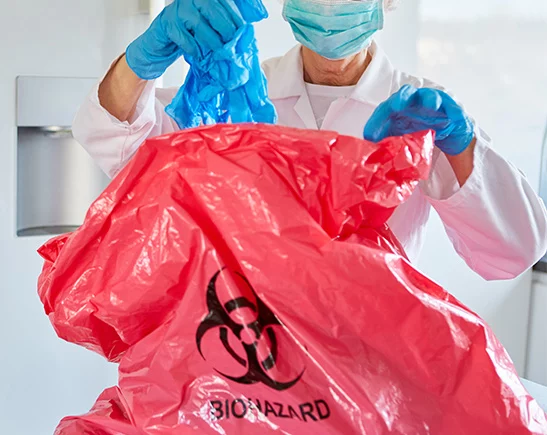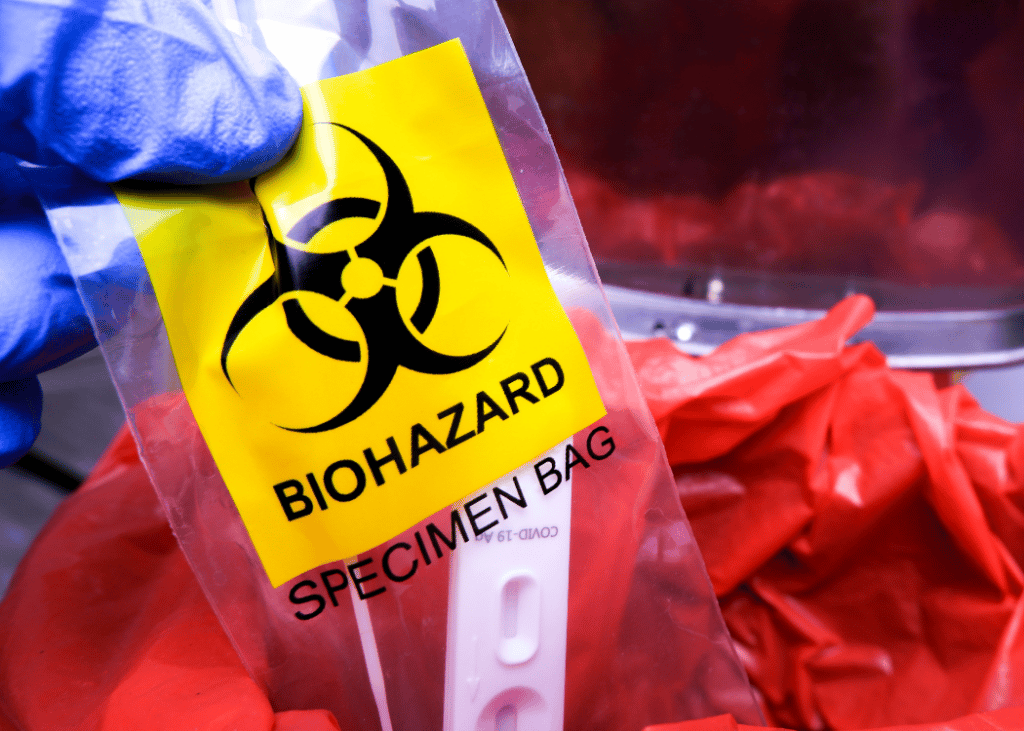Navigating Security: The Crucial Overview to Medical Waste Disposal Best Practices
Navigating Security: The Crucial Overview to Medical Waste Disposal Best Practices
Blog Article
Checking Out Different Waste Disposal Options for a Cleaner Atmosphere
In the pursuit of a cleaner environment, the monitoring of waste disposal has actually arised as an important focal point for lasting development. With a multitude of waste disposal alternatives offered, ranging from standard landfill techniques to innovative waste-to-energy technologies, the selection of how we manage our waste has far-reaching effects for our earth's wellness.
Recycling Methods
Executing reliable reusing techniques is vital in reducing waste and advertising sustainability in our setting. Recycling entails the process of transforming waste products right into recyclable things to avoid unneeded disposal. Among the most usual recycling approaches is material healing, where products like paper, plastic, steel, and glass are accumulated, sorted, and refined to create new items. This procedure not only preserves natural sources but likewise reduces energy consumption and greenhouse gas discharges related to creating brand-new products from square one.
An additional important recycling method is composting, which involves decaying natural waste like food scraps and backyard trimmings into nutrient-rich soil. This process not only diverts organic waste from garbage dumps however likewise generates a beneficial source for gardening and agriculture. Additionally, upcycling is an innovative recycling technique that includes transforming old or disposed of materials into products of better or worth. By including these numerous recycling methods right into our waste administration techniques, we can significantly reduce our ecological impact and move towards an extra lasting future.

Composting Methods
Effective waste administration techniques, such as recycling techniques, lead the way for a cleaner setting, and now, changing the emphasis to 'Composting Techniques', we explore lasting means to disintegrate organic waste for environmental advantage. medical waste removal service.
Composting is an all-natural procedure that changes organic waste, like food scraps and backyard trimmings, right into a nutrient-rich soil change. The trick to successful composting exists in developing the right balance of eco-friendly products, such as vegetables and fruit scraps, and brown materials, like dried out fallen leaves and twigs. These products break down with the assistance of microbes, breaking down the waste into important compost.
There are numerous composting methods readily available to suit different needs. Typical backyard composting involves layering organic materials in a bin or pile and routinely transforming the blend to freshen it. Vermicomposting, on the various other hand, utilizes worms to damage down natural issue right into garden compost (click here). For those with minimal area, interior composting systems give a convenient solution. By utilizing composting methods, we can reduce the quantity of waste sent out to landfills while creating a useful product for improving dirt and sustaining plant development.
Incineration Advantages And Disadvantages
Incineration, as a waste disposal technique, presents both advantages and negative aspects that merit cautious consideration in the world of lasting waste monitoring techniques. On the silver lining, incineration can dramatically lower the quantity of waste, decreasing the demand for garbage dump space and possibly decreasing greenhouse gas emissions. Incineration additionally enables for the recuperation of energy through the generation of power or heat, adding to resource recovery. Moreover, the procedure can be used to damage dangerous materials, using a safe technique for managing specific kinds of waste that may pose threats to public health and the environment if left neglected.
Nevertheless, there are significant downsides to incineration. One major worry is the possible release of harmful pollutants into the air, such as dioxins, hefty steels, and particle matter, which can have adverse effects on human health and wellness and the setting. Additionally, the high initial financial investment and operational costs of incineration facilities present economic challenges, making it a much less cost-effective option contrasted to other waste administration strategies. Mindful surveillance and law are vital to alleviate these unfavorable effects and make the most of the benefits of incineration as component of a detailed waste administration method.
Land Fill Monitoring Methods
Landfills play an important function in waste administration and environmental conservation by giving a containment system for the disposal of solid waste products. Reliable land fill informative post monitoring approaches are vital to minimize ecological effects and make sure the long-lasting sustainability of these waste disposal sites. One crucial method is appropriate waste compaction to make best use of the usage of offered room within the landfill (click here). By compacting the waste, the volume is decreased, permitting even more waste to be suited gradually.
Additionally, the implementation of day-to-day cover methods is crucial in lessening smells, avoiding litter, and lowering the destination of bugs. Covering the disposed waste at the end of each day aids to contain odors and prevent potential ecological contamination. Furthermore, the monitoring of garbage dump gas discharges and leachate degrees is essential in making certain that ecological standards are satisfied and that any prospective threats to surrounding communities are lessened.

Waste-to-Energy Technologies
One of the cutting-edge methods to lose monitoring involves using Waste-to-Energy technologies to transform solid waste right into functional power sources. Waste-to-Energy (WtE) technologies include a variety of procedures that aim to draw out energy from waste products through thermal, chemical, or organic means. This conversion process not only decreases the volume of waste that finishes up in landfills yet likewise produces important power resources such as electrical energy, heat, or biofuels.
There are several techniques of Waste-to-Energy conversion, including gasification, pyrolysis, and incineration. Incineration includes melting waste at high temperature levels to create warmth and electrical energy. Gasification transforms waste right into a syngas, which can be used for power generation or chemical production. Pyrolysis breaks down natural materials using heats in the absence of oxygen, producing char, bio-oil, and gas.
Carrying out Waste-to-Energy innovations can assist alleviate ecological issues connected with standard garbage disposal methods while all at once providing an eco-friendly energy source. However, cautious factor to consider must be provided to emissions control and making sure the sustainability of feedstock supplies for these modern technologies to be absolutely valuable for a cleaner environment.

Conclusion
To conclude, discovering different waste disposal choices such as reusing, composting, incineration, landfill monitoring, and waste-to-energy modern technologies is vital for advertising a cleaner environment - click here. Each method has its very own benefits and difficulties, however by using a combination of these methods, we can work in the direction of lowering the amount of waste that finishes up in land fills and ultimately add to an extra lasting future for generations ahead
With a wide range of waste disposal options offered, ranging from typical land fill methods to cutting-edge waste-to-energy innovations, the option of exactly how we manage our waste has significant ramifications for our planet's wellness. medical waste removal.Incineration, as a waste disposal approach, presents both benefits and drawbacks that warrant cautious consideration in the world of sustainable waste administration methods.Garbage dumps play a critical function in waste monitoring and ecological preservation by offering a containment system for the disposal of strong waste products. By condensing the waste, the quantity is decreased, enabling for even more waste to be accommodated over time
One of the cutting-edge methods to squander monitoring includes utilizing Waste-to-Energy modern technologies to convert strong waste right into useful energy resources.
Report this page